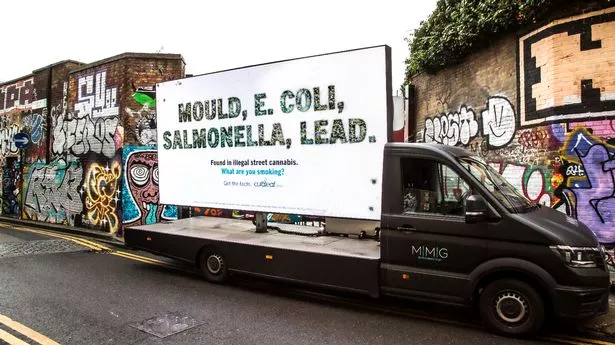UK street cannabis has been found to contain dangerous levels of mould, yeast, lead, E. coli and salmonella.
The research was conducted by Manchester Metropolitan University in partnership with Curaleaf Clinic, who analysed 60 samples seized by police in Greater Manchester and Northumbria.
An astonishing 90% of the tested samples were contaminated with either mould or yeast, some 8% with lead, and 2% with salmonella and E. coli. Further independent testing also discovered highly unsafe synthetic cannabinoids including Spice and K2 in 27% of samples.
Health experts have issued warnings that this could result in respiratory problems, neurological damage, and gastrointestinal infections for users.
These shocking results were unveiled following a study of 500 drug users commissioned by a medical cannabis clinic, Curaleaf Clinic.
The study found that almost two thirds of illegal cannabis is purchased by those attempting to manage medical conditions such as anxiety (49%), depression (49%) and chronic pain (28%).
A separate study of 2,000 adults revealed that only 46% are aware that medical cannabis is legal and available on specialist prescription. As over one in 10 have resorted to the dark web, online retailers, and even QR code stickers left by dealers to acquire the substance.
Dr Simon Erridge, research director at the clinic, warned: "It is crucial for consumers to be aware of the hidden dangers in illegal cannabis, especially as so many people are buying it to manage health issues which could be exacerbated by these hazardous substances."
He added: "The law changed six years ago so there is a legal, regulated and quality-tested alternative for those suffering with diagnosed chronic illnesses which haven't responded to conventional therapies. Many people are putting themselves at risk, when they don't need to."
Despite the dangers, 18% of illegal cannabis users are oblivious that the products they buy may contain hazardous contaminants, as an alarming 66% can't identify mould-contaminated cannabis.
Curaleaf has initiated a public health campaign, What Are You Smoking?, targeting those most vulnerable in an effort to highlight the risks of illegally obtained cannabis.
The clinic has issued Billboards displaying the study's findings in known drug dealing areas, based on data gathered through a Freedom of Information (FOI) request. So far, an 'ad van' showcasing the billboards has visited locations in Tower Hamlets and Lambeth in London and is set to travel to Manchester Piccadilly and Merseyside.
Echoing strategies employed by street dealers, biodegradable QR code stickers directing individuals to crucial information on the perils of unregulated cannabis are also being positioned in these hotspots.
Dr Oliver Sutcliffe, senior lecturer at Manchester Metropolitan University, stated: "We hope to provide valuable insights that will help consumers make safer choices. Our findings serve as a stark reminder of the importance of vigilance and education in protecting public health."
